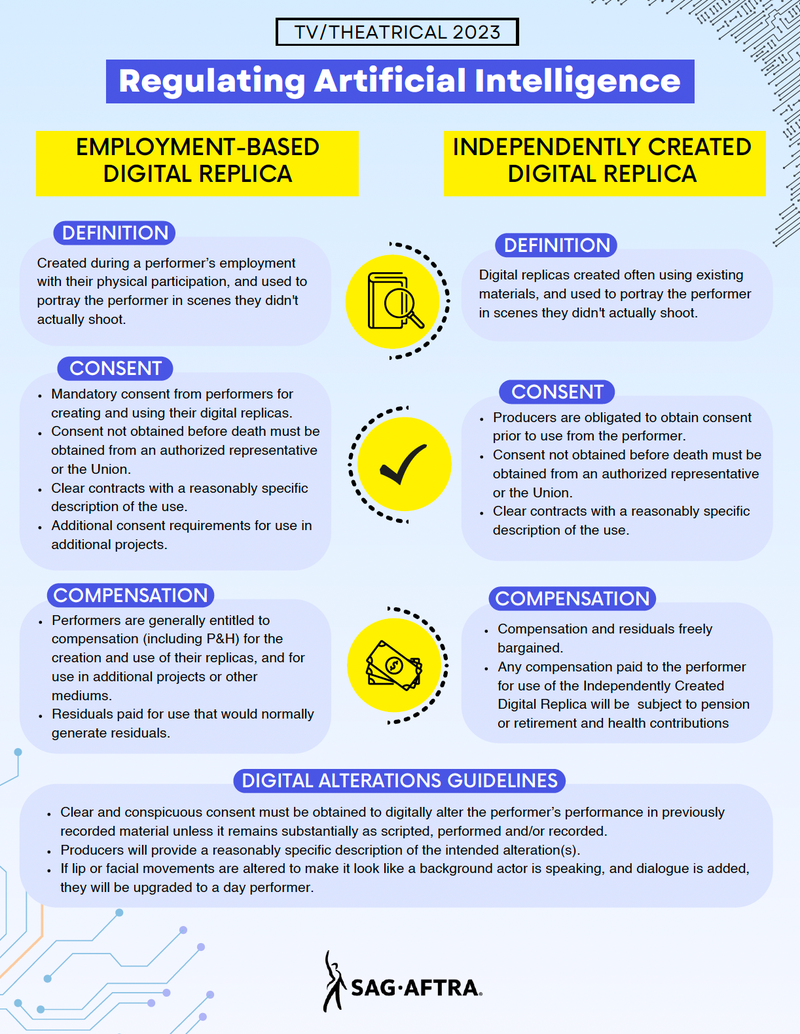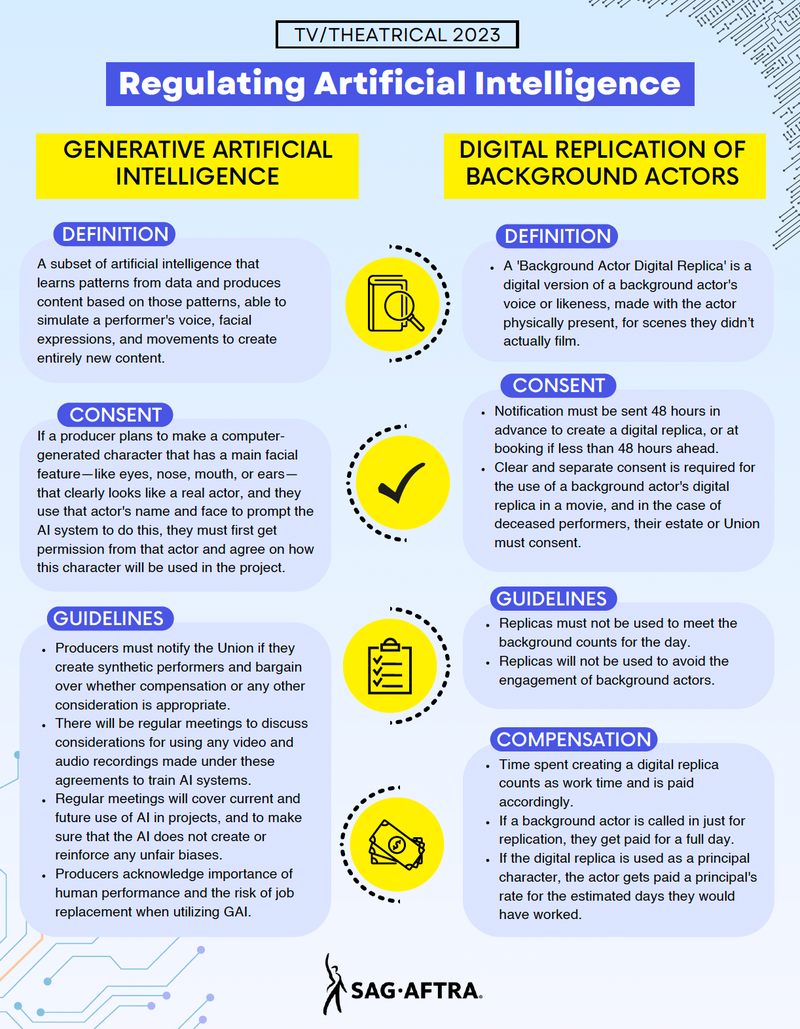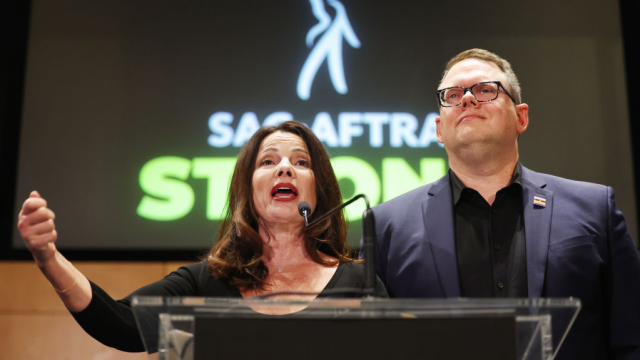Although the season of Hollywood strikes came to an end when SAG-AFTRA closed its picket lines last week having secured a tentative agreement with the AMPTP, it’s not over yet—ahead of the union membership vote on the potential three-year contract, SAG-AFTRA has released a summary of the deal to read online.
86% of SAG-AFTRA’s board voted to approve the agreement last Friday, November 10, estimated to value around $US1 billion, but ahead of the wider membership’s vote a new extended summary of the deal has been released online—as well as a specific visual aid concerning the deal’s A.I. regulations, a major sticking point during negotiations that saw the strike draw out across 118 days.
One major highlight of the summary is details about the streaming revenue-sharing plan arranged in the deal, largely in line with revenue-sharing gains made by the WGA with the conclusion of its own strike a few months ago. Drawn from a $US40 million annual fund in each year of the contract, the revenue sharing will pay out to “series, mini-series and longform pictures that have initial exhibition on or after January 1, 2024,” and go towards projects viewed by at least 20% of a streamer’s subscriber base within 90 days of premiering. Although no specific details of the payments are included in the summary, it further notes that the payment will be split 75-25 between cast and a new fund co-run by SAG-AFTRA and the AMPTP, with a board of trustees set to be established that will manage the distribution of that remaining fund at a later date.

But it’s the details about SAG-AFTRA’s A.I. protections that will no doubt raise eyebrows, considering the threat the technology posed was constantly at the forefront of negotiations during the strike. The summary breaks down various broad use cases for artificial intelligence by role on a project: digital replicas of an actor, made either with their physical participation during the project or from archival material, and then synthetic replicas made using generative A.I. prompts and digital replication of background actors for crowd scenes.

While there are certainly gains here in terms of requiring clear and specific terms of consent—from both living actors and the estates of deceased parties—and levels of compensation for the use of such replicas, especially for background actors, where there are specific protections to ensure replicas cannot be used to fill out minimum requirements for employing background actors, there are no doubt going to be concerns raised at how broad some of the arrangements are as laid out in the tentative agreement.
This is especially the case when it comes to actors consenting to the use of digital replicas and A.I. to make changes in post-production. According to the agreement, consent is not required in most cases if A.I. is used for a litany of changes post-production, including dubbing, or to changes to “cosmetics, wardrobe, noise reduction, timing or speed, continuity, pitch or tone, clarity, addition of visual/sound effects or filters, standards and practices, ratings, an adjustment in dialogue or narration” or other similar scenarios, including where traditionally a double would be used.
The broad caveats as well as what details are left out of the summary could be cause for concern as the wider union membership as the ratification process begins—already concerns were being raised over the weekend by some members, such as actress/writer Justine Bateman, who served as a union advisor on generative A.I..
“The train track is split. One train track is going, ‘OK, we’re going to participate in this sort of negotiation with the cannibals and we’re going to talk about just how you’re going to be cutting my foot off, and are you going to grill it or boil it, and what kind of sauce are you going to put on it?’” That track is the one that includes generative A.I.,” Bateman told MSNBC describing the caveats for consent in the agreement, adding that members should only vote to support the agreement “if they don’t want to work anymore” and be replaced by synthetic replicas.
The full Memorandum of Agreement on the deal has yet to be made public, but voting by SAG-AFTRA membership will begin tomorrow, November 14, and is expected to last through to early December.
Want more entertainment news? Check out when to expect the latest Marvel, Star Wars, and DC releases, what’s coming to cinemas in Australia this year, and everything streaming this month across all platforms. Check out our dedicated Entertainment tab for more.
